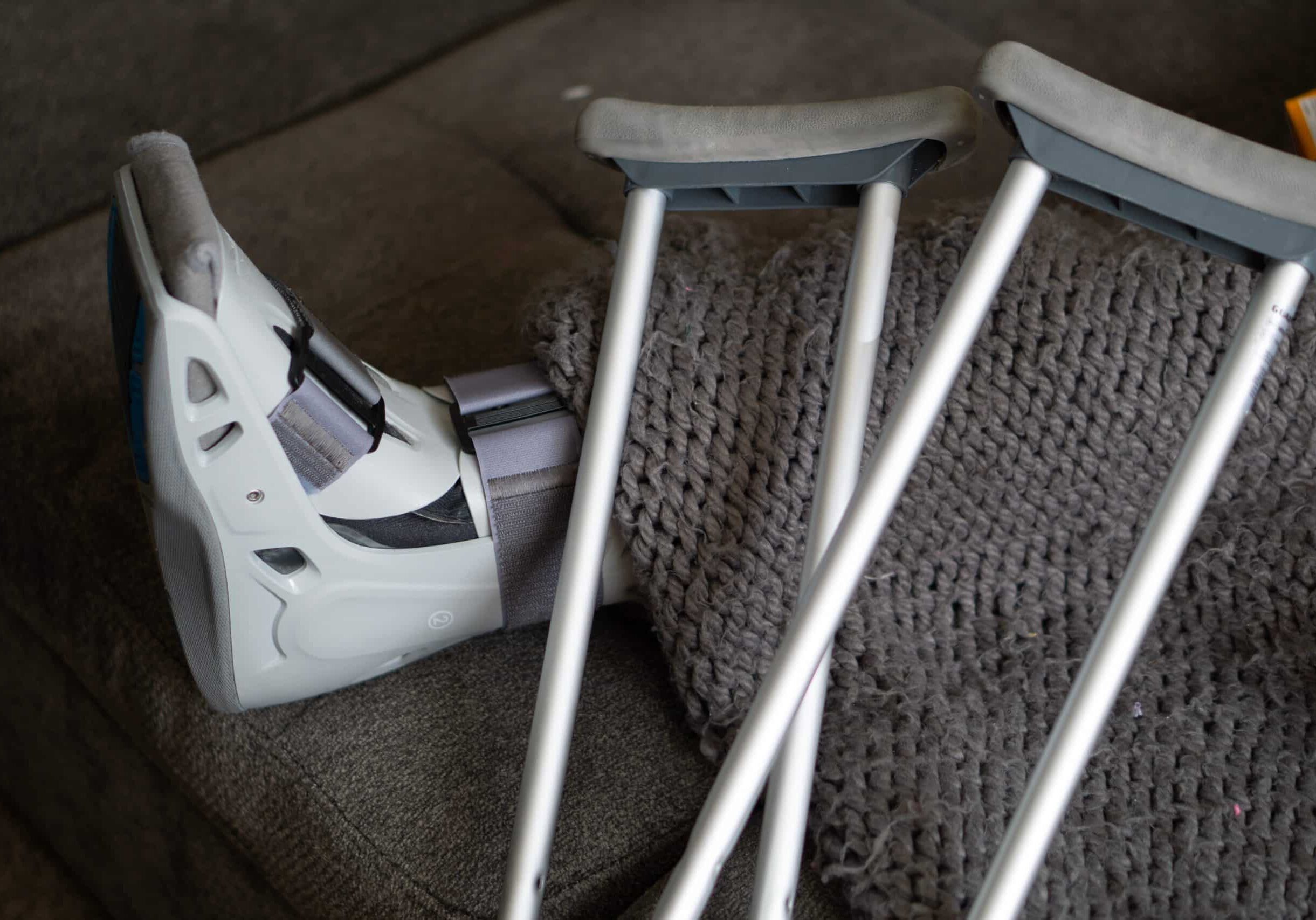
Car crashes are serious events. While we often focus – rightly so – on fatal car accidents, accidents also cause life-threatening injuries. In 2020, crashes caused nearly 5 million injuries that required medical treatment. In Alabama alone, nearly 50,000 people were injured in car accidents in 2019. These injuries can be temporary or permanently affect a person’s body and life.
Each accident is unique and so is each injury. Yet, some types of injuries recur in many crashes. This blog post will discuss the various types of car crash injuries, what to do if you are injured, and how to avoid accident injuries.
Injuries to the Upper Body & Back
Traumatic Brain Injury – A traumatic brain injury (“TBI”) affects brain function. TBIs can cause symptoms such as loss of consciousness, memory loss, concentration issues, seizures, mood swings, and other difficulties. TBIs can be mild or severe. (Concussions are a mild form of TBI.) If untreated or improperly treated, a TBI’s effects can be permanent.
Whiplash – “Whiplash” is the popular term for a common neck injury. The injury happens when the neck is forced to move rapidly back-and-forth, much like a whip. Whiplash usually heals within a few weeks but can lead to chronic or permanent pain if ignored.
Back Injuries – The delicate spinal column is particularly prone to injury. The muscles attached to the spine can be pulled, the nerves along the column can be pinched, and ligaments that hold everything together can be strained. Worse, an accident can cause the tiny discs that separate each backbone – or vertebra – to rupture (a “slipped disc” or “herniated disc”) or bulge. Any of these injuries can make daily life quite painful.
Injuries to the Extremities
Broken Bones – The most common serious injury to the extremities (arms and legs) are fractures or broken bones. Most fractures are what doctors call “simple” – one clean break inside the arm or leg. In rare cases, a fractured bone will shatter into three or more pieces. This type of break – called a comminuted fracture – often leads to amputation.
Crush Injuries – Crush injuries happen when a heavy object places substantial pressure on a body part. A body part trapped between two cars, two parts of a car, or a car and a surface can be crushed. Crush injuries can cause compartment syndrome, a condition that causes severe damage to the muscles, nerves, and vessels in arms and legs.
Other Types of Car Crash Injuries
Internal Organs – Important organs like the lungs, liver, and kidneys can be harmed in car accidents. Like arms and legs, organs can be the victims of crush injuries. Organs can also be punctured if car parts or other projectiles enter the abdomen.
Soft Tissue Damage – Experts note that soft tissue injuries are the most common car crash injuries. While the name “soft” might make one think that these injuries are not serious, this is not true. Soft tissue injuries are injuries to muscles, ligaments, and tendons rather than organs or bones. Bruised muscles, torn ligaments, and inflamed tendons are all examples of soft tissue injuries.
Cuts, Burns, Scrapes – Car crashes can produce flying glass or fires. People can be thrown from cars. The cuts, burns, and scrapes from these events are the most common minor injuries in car accidents, but can also be severe if serious or if left untreated.
Mental Injuries – Many people overlook the mental injuries caused by car crashes. However, the law recognizes that the pain and suffering experienced by car crash victims is real and can be compensated. Mental injuries can include Post-Traumatic Stress Disorder (PTSD), depression, anxiety, and many other emotional conditions.
What to do if You Are Injured
If you have been in a car accident, there are two rules you must follow regarding injuries.
First, if you have been in an accident, seek medical treatment immediately. Don’t wait until you start showing signs or symptoms to seek medical treatment. A few of the injuries listed above – such as broken bones – are immediately obvious. However, serious car accident injuries can take days, weeks, or even months to fully develop. Going without medical treatment for that long can make your injury worse.
Second, even if you feel fine after an accident, never tell anyone that you feel “fine.” Insurance companies are not your friend. They want to deny your claim. If you tell people that you are “fine,” the insurance company won’t think that your injury got worse; they will think that you are lying and they will argue this in court. Only discuss your injuries with your doctor or your lawyer – and never on social media.
How to Prevent Car Accident Injuries
Car crashes and the injuries they cause are serious, but they are also preventable. Taking the following precautions can protect you on your next drive:
- Always wear a seatbelt.
- Always secure children in properly installed car seats or seatbelts.
- NEVER drive while under the influence of drugs or alcohol.
- NEVER drive while extremely sleepy.
- Avoid unnecessary distractions (eating, texting, etc.) while driving.
- Keep your car in good working condition, paying special attention to the brakes and tires.
- Follow all traffic laws including the speed limit.
While all of these tips promote safety, wearing seatbelts is the most important thing you can do to prevent serious injury. According to the CDC, seatbelts reduce the risk of serious injury by 50 percent.
More Questions About Car Accident Injuries?
If you’ve been injured in a car accident, you need time to heal. While you heal, you should strongly consider discussing your potential case with a lawyer. If you also need legal assistance, contact Collins Law, LLC. Our team will provide the legal knowledge you need and the compassion you deserve. Contact us today at (205) 588-1411 or click here to schedule a free consultation.